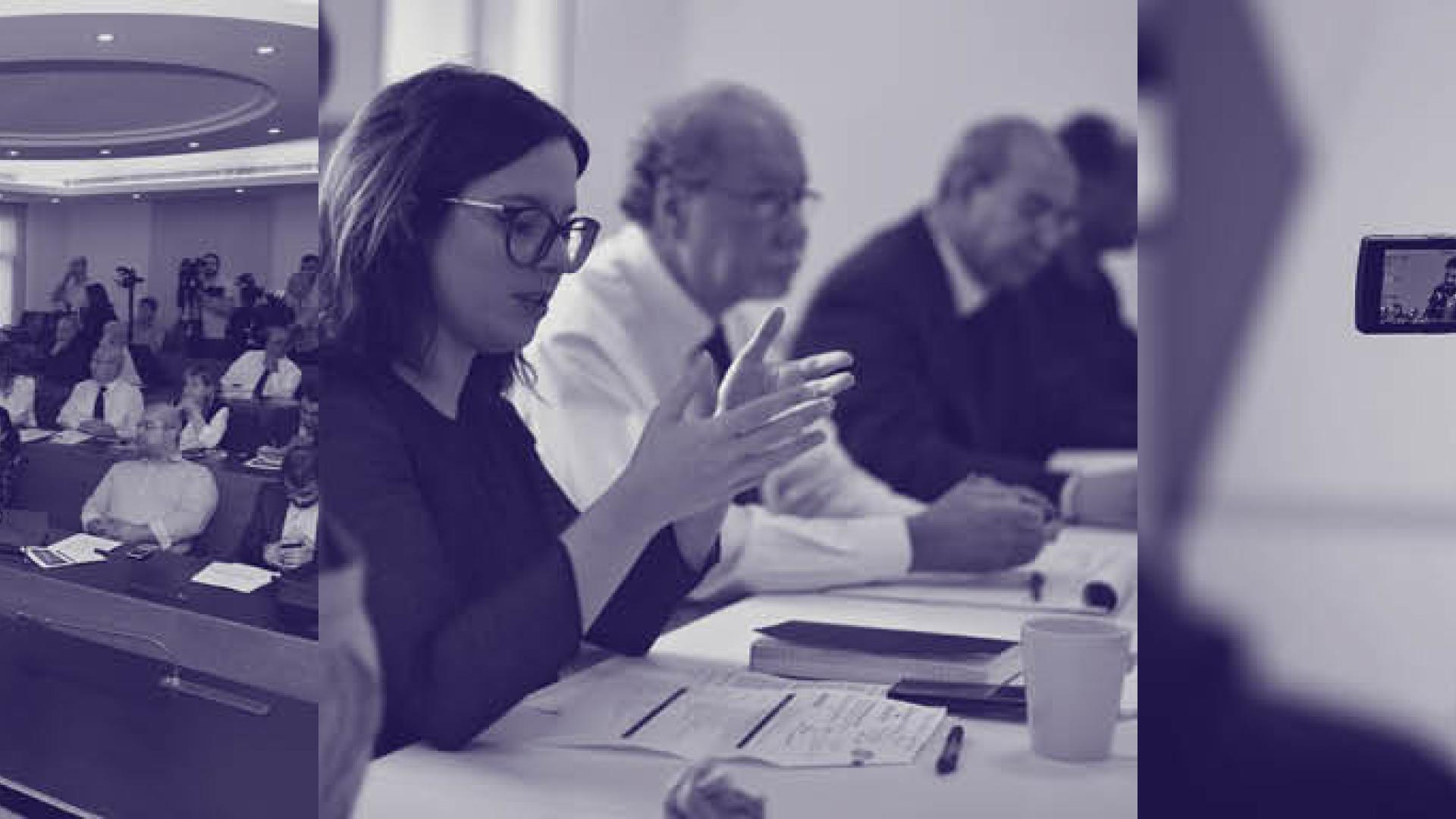SNP support for women’s political participation in the Middle East and North Africa

Emma Armshaw, Head of SNP WFD Office
Ra’edat developed a regional policy paper calling for changes to political party structures in its 14 member countries in March 2018.
On 14 October, the SNP WFD office supported the Sudanese Women’s Caucus to adapt the regional policy for the specific context in Sudan. The aim is to increase women’s representation in the National Assembly to 50 per cent.
A regional policy for gender equality
“Ra’edat” which means pioneer in Arabic was formed by current and former women MPs from the Middle East and North Africa following the Arab Spring. The cross-party network has over 200 members from 14 countries and works to promote the equality of women in the region, particularly through increased political representation. The SNP has proudly supported the network as part of its WFD funded work since 2016. In 2018, the SNP’s work with Ra’edat focused on the women’s determination to develop a policy to reach gender parity in political parties’ power structures and electoral lists.
In March, 27 women from 12 countries met to develop the first draft of the regional policy paper, with the guidance of WFD’s Senior Advisor for Gender, Inclusion and Politics, Shannon O’Connell, and Tunisian women’s organisation CAWTAR. Since then, taking a partner-driven approach, the SNP WFD has worked with members of the Executive to launch the paper in a series of national-level conferences and workshops to tailor the policy in a way specific to their state.
Adapting to local context
The first national conference was held in Amman, Jordan in July, hosted by the Minister of Political and Parliamentary Affairs and organised by Dr Rula Farra Hroob, the President of Ra’edat and former Jordanian MP. Approximately 140 representatives from Parliament, Ministries, political parties, NGOs, Embassies, and grassroots organisations attended and were encouraged to provide input.
As a result, a committee was formed to explore how the policy could be adapted so that it is accepted by all parliamentarians in Jordan. Issues surrounding membership of any political party in Jordan and some parties’ vocal opposition to quotas will be hurdles to the success of the policy, which the Committee seeks to address in its forthcoming Jordanian draft.
Abla Mahadi MP organised the October meeting in Khartoum to gather perspectives from political parties and grassroots organisations for the Sudanese-specific version of the policy paper. The National Assembly of Sudan already claims an impressive 30 per cent female representation, but members of the Sudanese Women’s Caucus are determined to increase it to 50 per cent.
Women from several political parties spoke about their commitment to work together on this important issue, including a blind MP who reminded the Caucus to consider the needs of persons with disabilities as well. In the coming weeks, the recommendations from the workshop will be formed into a Sudan-specific policy paper.
Next steps
Egypt will host the next Ra’edat workshop in November to discuss how the policy paper can be adapted to the context there. The Ra’edat Executive will then take a decision about which countries will host forthcoming conferences, to advocate for the policy paper across the region.
The status of women parliamentarians varies greatly across the 14 countries represented in the network. That is why it is so important to adapt the original broad policy paper within each country, based on the recommendations of grassroots organisations, MPs and political parties. Once state-specific papers are developed, SNP MPs will work with Ra’edat on how to advocate for the policy to be adopted by political parties.
The Scottish National Party is led by a woman, First Minister Nicola Sturgeon, who took the decision to assemble a gender-balanced cabinet, a policy she has maintained through reshuffles over the past four years in office. The SNP’s WFD office is very proud to share our commitment to equality with Ra’edat and support their member-driven push for ever closer equality across the Middle East and North Africa.